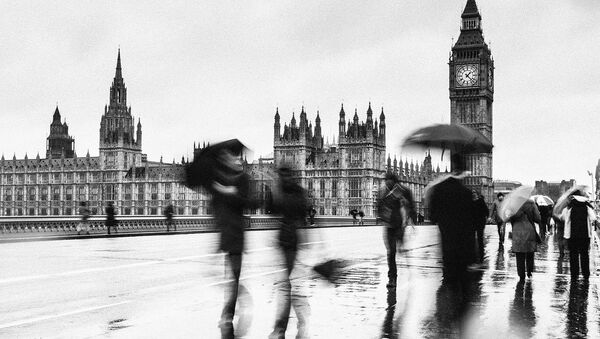The Prime Minister said the scale of the atrocity in France revealed "a greater ambition for mass-casualty attacks" on the wider West.
My message to the French people: Nous sommes solidaires avec vous. Nous sommes tous ensemble. We are with you. United.
— David Cameron (@David_Cameron) November 14, 2015
In response, there has been a visible increase in police on the streets of London, as well as at UK port and air borders.
The government is adding an extra 1,900 security and intelligence staff and is to double funds for aviation security. It'll be a 15% increase for MI5, MI6 and GCHQ, and the biggest rise in British security spending since the 7/7 London bombings in 2005.
I have spoken to Francois Hollande. I expressed our solidarity with France and said we will do whatever we can to help.
— David Cameron (@David_Cameron) November 14, 2015
The focus on the security services comes a week after the Investigatory Powers Bill was proposed by the Home Secretary Theresa May.
Nicknamed the Snoopers' Charter, the bill would authorize the mass collection of personal data, and require telecommunications companies to store records of websites visited by every citizen for 12 months.
Recent events from a different perspective… pic.twitter.com/h8lYc8wkcA
— CAGE (@UK_CAGE) November 15, 2015
There are concerns that governments across Europe may use the political fallout of the Paris attacks, which claimed the lives of 129 people, to fast-track surveillance legislation, such as Ms May's snooping bill.
Still: Not a single person calling for more legal powers for security powers can explain how those powers would actually prevent atrocities.
— David Allen Green (@DavidAllenGreen) November 16, 2015
Writing in the Telegraph, London Mayor Boris Johnson said he had "less and less sympathy" for those opposing the Investigatory Powers Bill:
"To some people the whistleblower Edward Snowden is a hero; not to me. It is pretty clear that bean-spilling has taught some of the nastiest people on the planet how to avoid being caught; and when the story of the Paris massacre is explained, I would like a better understanding of how so many operatives were able to conspire, and attack multiple locations, without some of their electronic chatter reaching the ears of the police."
It's a question on the minds of intelligence communities across the world. Particularly, as it appears that for at least some of the Paris attack suspects, this was a case of homegrown terrorism.
Shameful fear mongering and exploitation… France has some of the most intrusive surveillance laws in the World. https://t.co/YyKXmszs2U
— CAGE (@UK_CAGE) November 15, 2015
Mr Cameron also revealed this morning that seven attempts to attack Britain have been foiled in the past six months alone.
However, critics have pointed out that the French digital surveillance legislation, brought into place after the Charlie Hebdo massacre in January, is a lot more stringent than the UK's proposed Investigatory Powers Bill. So, they ask, will the Snoopers' Charter help thwart terrorism in Britain, if it failed to do so in France?


